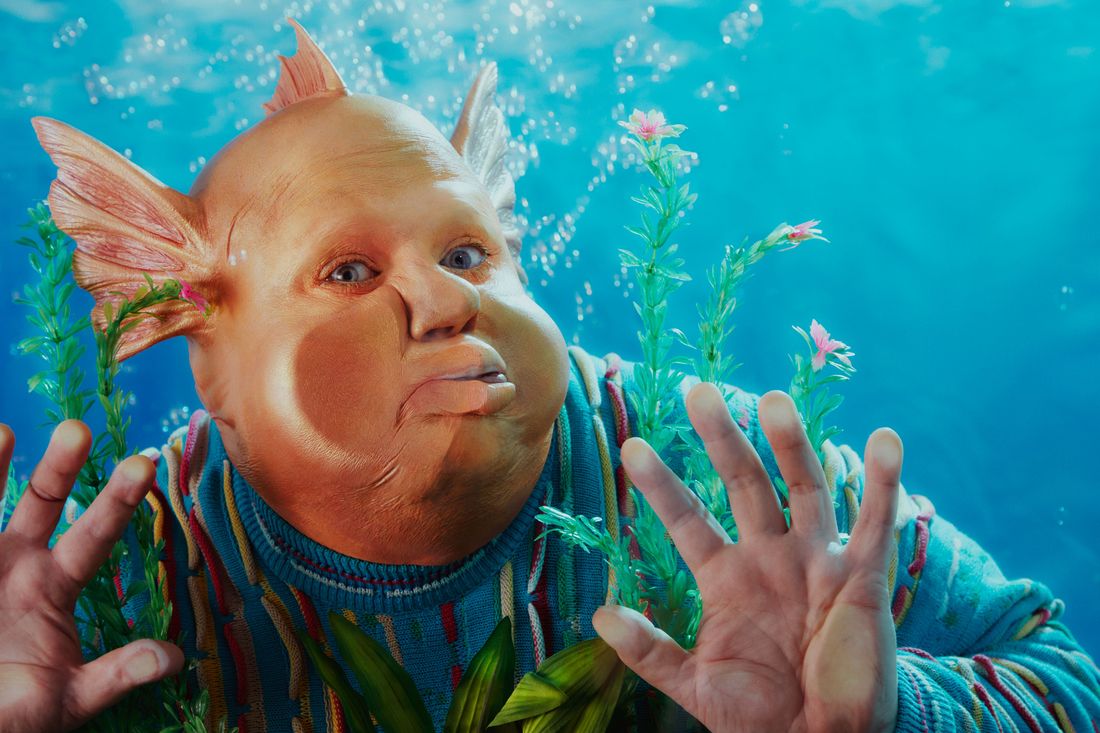
If all pets are to some extent prisoners, pet fish often get the harshest sentence. More than 11 million U.S. households keep freshwater fish, but despite a myriad of modern tanks on the market, many owners still opt to keep their pet-store-cup bettas and carnival goldfish in small glass bowls.
The standard glass fishbowl lacks filtration, leading to less oxygen moving in and higher ammonia levels that slowly murder the inhabitants. Plus it typically holds one to three gallons of water, and while owners may think that’s more than enough, it’s not. New York “wet vet” Dr. Benjamin Rosenbloom recommends at least five-gallon tanks for bettas and 40-gallon tanks for goldfish, which can be impractical in apartment settings. Although, “I’ve had clients who are quite wealthy, with all the space in the world, and they’re still doing this,” he says. “The equivalent of keeping a goldfish in a bowl would be like keeping a human being in a closet.”
In This Issue
Fishbowls also often lack plants or other décor that is required for stimulation — and if you do add plants, there’s even less water volume in what’s already scant real estate. Fishbowl goldfish and bettas are doomed to swim in the same endless loop, which, Rosenbloom says, can lead to muscular or orthopedic injuries such as crooked spines. Still, there’s no regulation on bowls, though some retailers may choose not to sell them. In 2022, the French aquarium purveyor AgroBiothers took them off the shelves; the CEO told Reuters that “turning round and round in a small bowl drives fish crazy and kills them quickly.” The average goldfish has a lifespan of ten to 15 years — some varieties even live into their 30s — but ones in fishbowls can die within a few weeks, if they make it that far. “We’ve seen many advances in all these other aspects of pet care, yet this one thing persists,” says California fish vet Dr. Jessie Sanders. “It drives me nuts.” She runs into the “just a fish” crowd at veterinary conferences. “They’re like, ‘Why would you put effort into saving a goldfish that comes from a store for 25 cents?’” she says. “Well, why would anyone save a cat or dog they found on the side of the road?”
How can we care for animals no one wants to see as animals? The old pescatarian arguments that fish don’t feel pain or have memories are still common despite research suggesting the contrary. Fish feel fear, avoid threats, and perhaps even recognize human faces, particularly those of their owners. You may notice large fish, like koi, making eye contact with you the way a dog or cat might. Maybe goldfish and bettas can do that, too, but their eyes are so small you may not notice the connection they’re trying to make.
Is My Cat a Prisoner? And other ethical questions about pets like …
➭ Are We Forcing Our Pets to Live Too Long?
➭ Am I a Terrible Pet Parent?
➭ Why Did I Stop Loving My Cat When I Had a Baby?
➭ What Do Vets Really Think About Us and Our Pets?
➭ I Am Not My Animal’s Owner. So What Am I?
➭ Was I Capable of Killing My Cat for Bad Behavior?
➭ Should I Give My Terrier ‘Experiences’?
➭ Do Runaway Dogs Deserve to Be Free?
➭ Are We Lying to Ourselves About Emotional-Support Animals?
➭ Does My Dog Hate Bushwick?
➭ How Agonizing Is It to Be a Pug?






